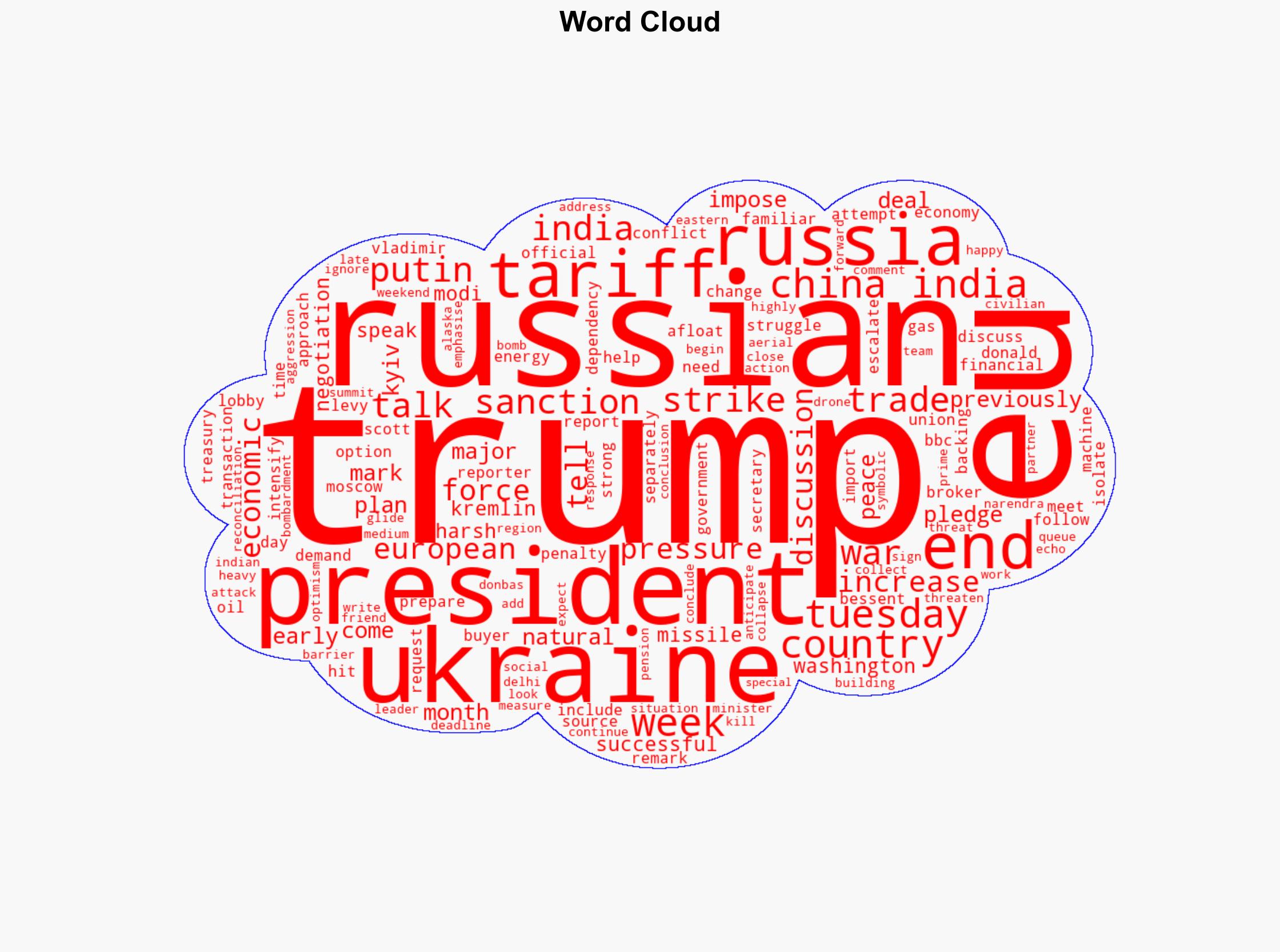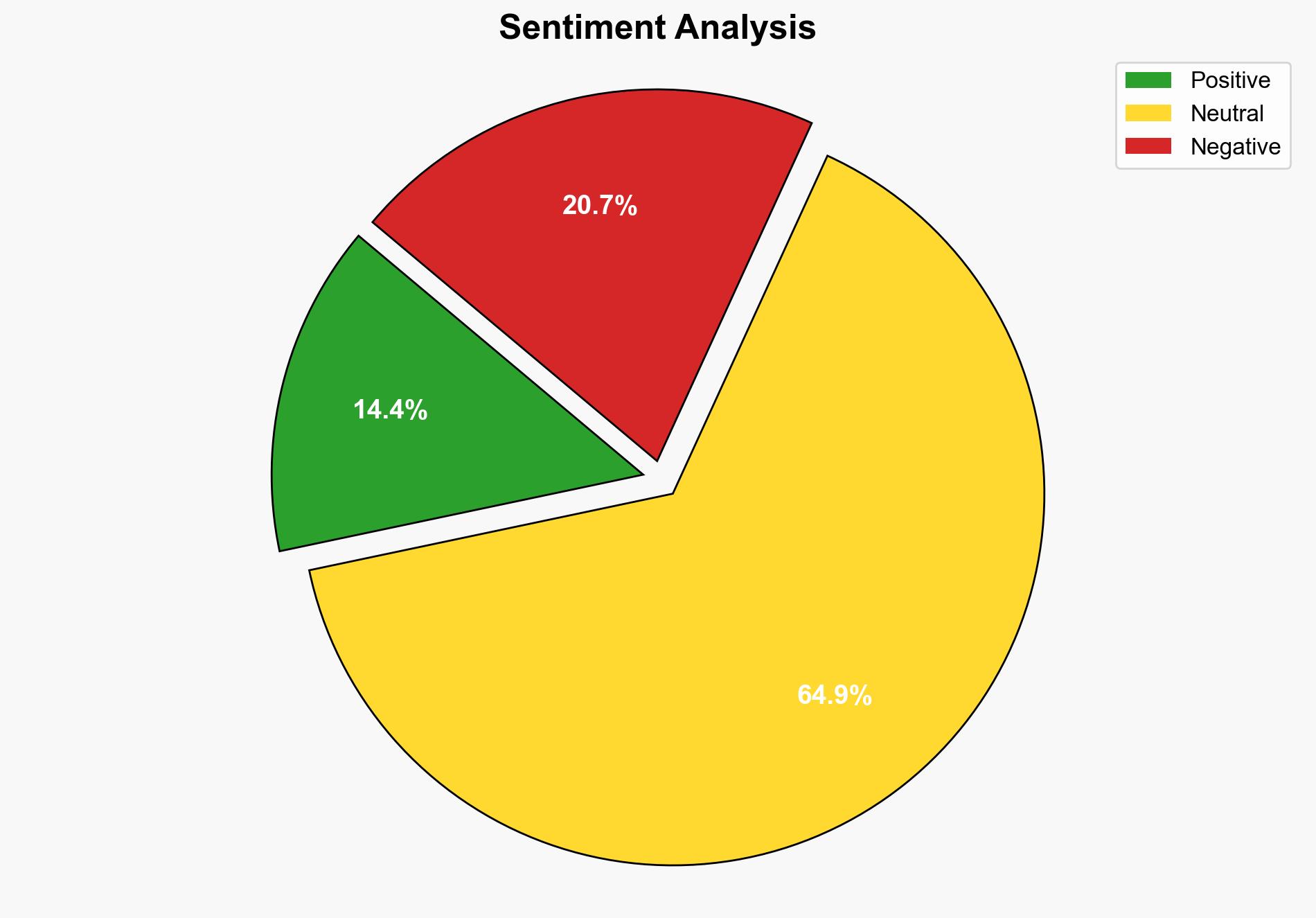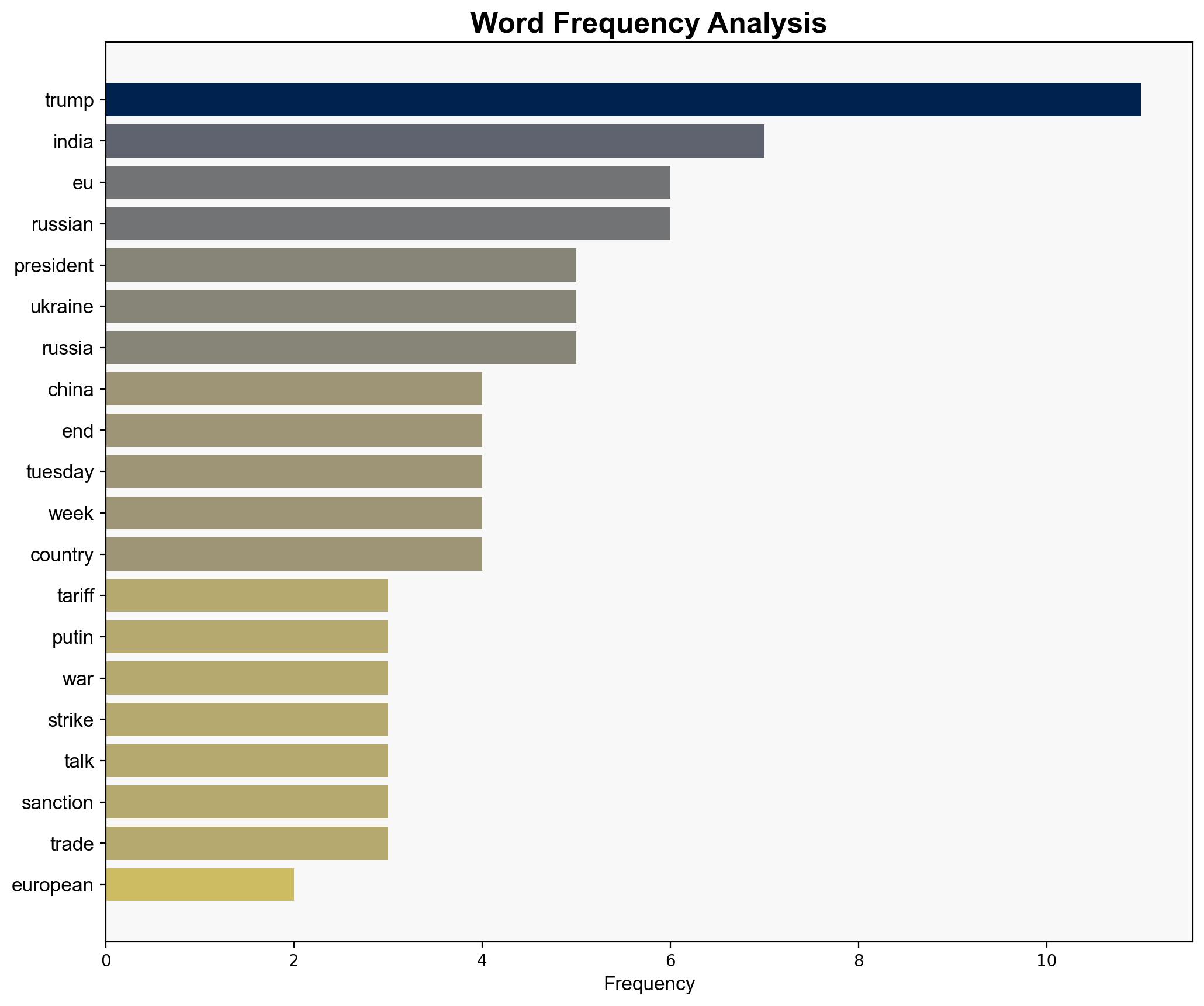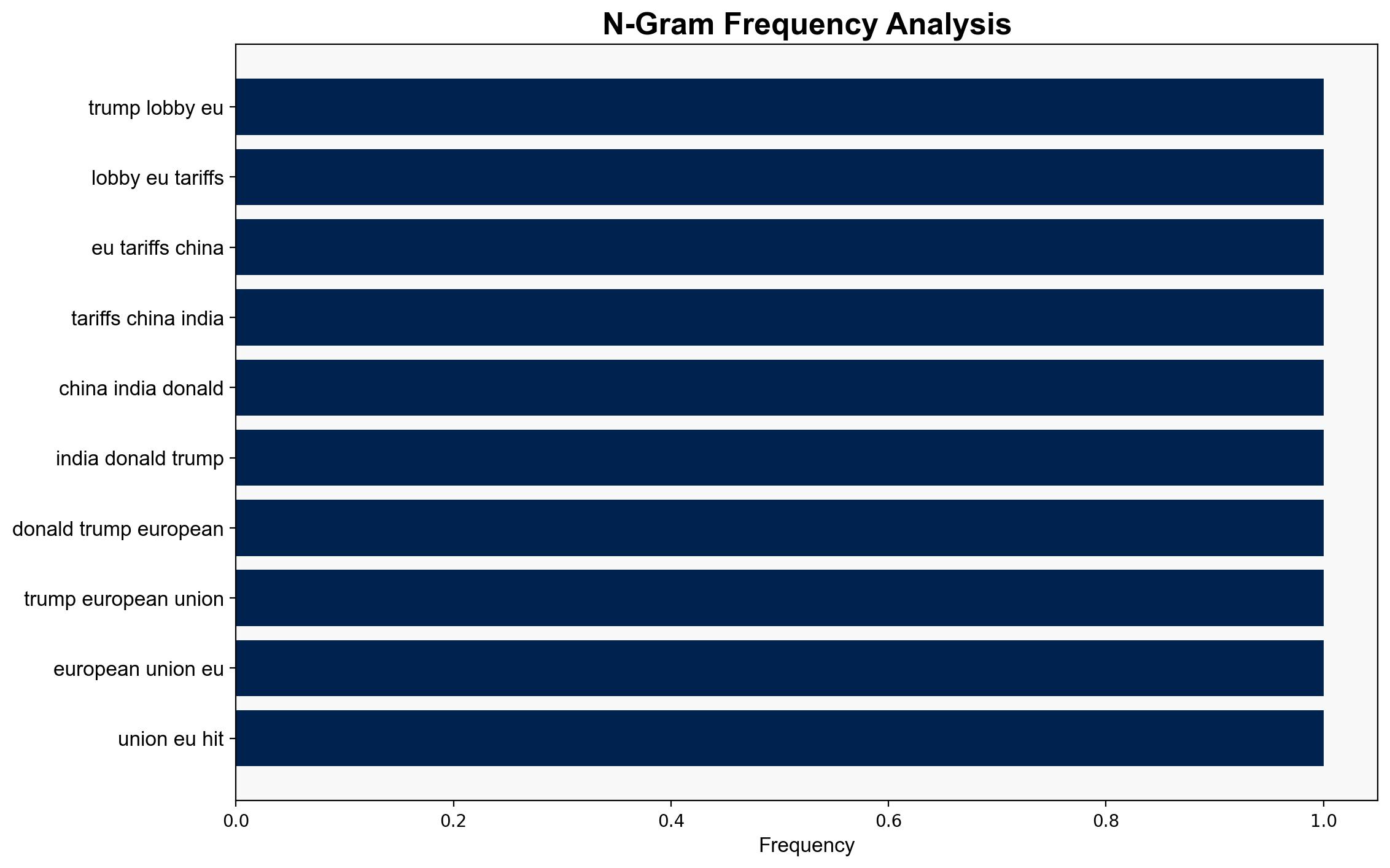Trump calls on EU to pressure Putin with 100 tariffs on China and India – BBC News
Published on: 2025-09-10
Intelligence Report: Trump calls on EU to pressure Putin with 100 tariffs on China and India – BBC News
1. BLUF (Bottom Line Up Front)
The most supported hypothesis is that Donald Trump’s call for the EU to impose tariffs on China and India is primarily a strategic maneuver to increase economic pressure on Russia, aiming to expedite an end to the conflict in Ukraine. This hypothesis is supported by the alignment of Trump’s statements with ongoing geopolitical tensions and the EU’s existing sanctions strategy. Confidence level: Moderate. Recommended action: Monitor EU’s response and potential shifts in China and India’s trade policies.
2. Competing Hypotheses
Hypothesis 1: Trump’s proposal is a strategic effort to pressure Russia by targeting its economic allies, China and India, thereby weakening its war capabilities in Ukraine. This aligns with Trump’s historical approach of leveraging economic measures to influence geopolitical outcomes.
Hypothesis 2: The call for tariffs is primarily a political move by Trump to assert influence in international affairs and strengthen his position domestically, rather than a genuine effort to alter the course of the Ukraine conflict. This could be seen as a continuation of his previous rhetoric and policy style.
Using ACH 2.0, Hypothesis 1 is better supported due to the coherence with Trump’s stated objectives and the broader geopolitical context. Hypothesis 2, while plausible, lacks direct evidence of domestic political gain from this specific action.
3. Key Assumptions and Red Flags
Assumptions include the belief that tariffs will significantly impact China and India’s economic relations with Russia and that the EU will align with Trump’s strategy. A red flag is the lack of explicit EU commitment to such measures, which could undermine the effectiveness of the proposed strategy. Additionally, there is an assumption that China and India will not retaliate or adjust their strategies in response.
4. Implications and Strategic Risks
The imposition of tariffs could lead to increased economic tensions between the EU, China, and India, potentially escalating into broader trade conflicts. This could also strain EU relations with these countries, complicating diplomatic efforts. There is a risk of retaliatory measures by China and India, which could destabilize global markets and impact EU economies. The geopolitical landscape could shift, affecting alliances and power dynamics.
5. Recommendations and Outlook
- Monitor EU’s response to Trump’s proposal and any shifts in China and India’s trade policies.
- Engage in diplomatic dialogues with China and India to mitigate potential retaliatory actions.
- Scenario-based projections:
- Best Case: EU adopts tariffs, leading to increased pressure on Russia and a negotiated settlement in Ukraine.
- Worst Case: Tariffs lead to a trade war, damaging global economies and exacerbating geopolitical tensions.
- Most Likely: Limited EU action with continued diplomatic efforts to address the Ukraine conflict.
6. Key Individuals and Entities
Donald Trump, Vladimir Putin, Narendra Modi, Scott Bessent.
7. Thematic Tags
national security threats, economic sanctions, geopolitical strategy, EU-China-India relations





